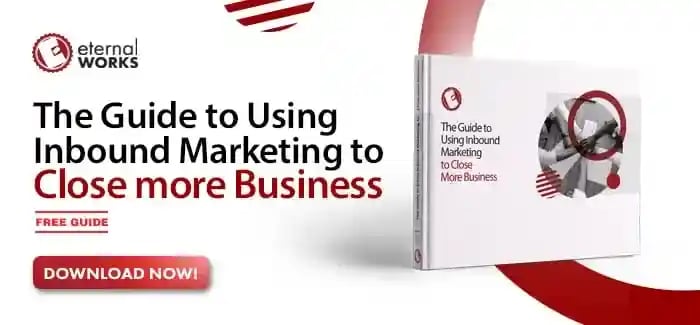You've done keyword research, you've written content articles, and you've improved your social media presence… but somehow, you're still not receiving the inbound traffic you would like. Or maybe you are seeing an increase in organic traffic, but you're not seeing an increase in sales.
Have you considered that you might be talking to the wrong people?
When you work in the cybersecurity business, many of your day-to-day communications are with other people in the same industry. You may innately understand the value of redundant servers or why multi-factored passcodes are replacing passwords. But there's a good chance that the people looking to purchase your services don't have that same innate understanding of what you do on a daily basis. Your ability to communicate what you do in a way that is valuable to the person you're communicating with directly correlates to your sales.
The importance of educating non-technical audiences
When you create content, the first question you should ask yourself is, "Who am I creating this content for?"
If you work in cybersecurity, you're probably not writing for other people who work in cybersecurity. They already know what you do and why you do it. Instead, you're writing for the decision-makers in other various industries. This could include:
- Members of upper management who decide which teams to hire for their companies
- Finance specialists who are determining their company's budget
- Department heads
- Small business owners
These individuals may have little-to-no understanding of what you do or why you do it. And if they can't understand cybersecurity, they have no reason to invest in it. Even if they know that they should invest some money in cybersecurity, without an understanding of the nuances of your business, the only thing they can do is go with the cheapest option (which we all know is probably not the best option).
These individuals are often busy, with their own daily tasks and priorities. They don't have time to spend hours researching every minute aspect of cybersecurity to determine the best way to protect their company. Your job is to prove that you've already done that research, that you know what you're doing, and that you're the best company to take on the job. Clear and effective communication is the best way you can prove yourself to business decision-makers.
3 Tips for communicating with non-technical audiences
So how do you ensure clear, effective communication with your non-technical target audience? We have three tips for improving your content and seeing results.
Speak THEIR language
Our first tip is to meet clients where they're at.
For example, let's pretend that your team has identified that your target audience consists of financial decision-makers. If that's the case, then any time you create content, you need to create it with finances in mind. Look for statistics about the high cost of cybersecurity breaches on businesses. If you charge more than your competitors, pay attention to the services they offer — and then prove why your services offer enough value to be worth the extra cost you're charging.
Answer their "why"
Any time you make a statement in your content, ask yourself the question, "Why does this matter?" Then, include that answer in your messaging.
For example, say you want to brag that your company has multiple redundant servers. From a cybersecurity point of view, that's great. But the dictionary definition of redundant is along the lines of "superfluous; not needed." Why should your clients care that you have a bunch of superfluous, unneeded servers?
Instead, you could expand that value point to something along the lines of: "We have multiple, redundant servers. This means that if one server fails, there's another one to back it up. You'll experience less downtime than you would with other companies because we have fail-safes in place."
Suddenly, your communication is much more effective, because you've explained not just what you provide but also why your clients should care about it.
Go ahead and over-explain
Technical jargon can bog down content. But sometimes, it's hard to write without using some technical lingo. The key to doing this well is to not just explain what that lingo means but to over-explain if possible.
While it's important to refrain from explaining anything so much that you talk down to your customers, business communications experts do suggest over-explaining when communicating with your audience. When you create content that over-explains a subject, you benefit in a few key ways:
- You establish your company as an authority on the subject you're talking about
- You clarify any questions customers may have before those questions become barriers
- You improve your brand's transparency, making yourself seem more trustworthy in the eyes of your customers
- You provide more valuable information and more complete answers to questions, which can help your content rank higher in terms of SEO.
Over-explaining can feel unnatural, especially for people who work in your field. Consider having someone outside your field read the content you've written before you publish it. If they have to ask "What does that mean?" at any point when reading the content, highlight that spot, and then go back and explain that term or answer that question directly in your article.
Expand your cybersecurity reach through education
By educating your customers, you can improve the reach of your cybersecurity team's messaging. Suddenly the organic traffic you've been working hard to attain does its job of helping move those leads along your sales funnel. When you improve your communication style, reduce jargon, and explain not just what your company does but also why that matters, you encourage customers to put their trust in your company and to invest in what you're selling.
Want to take it a step further? At Eternal Works, our dedicated team of growth-driven marketing professionals can help you generate more qualified leads and grow your business. To schedule a call, Discover more about.



